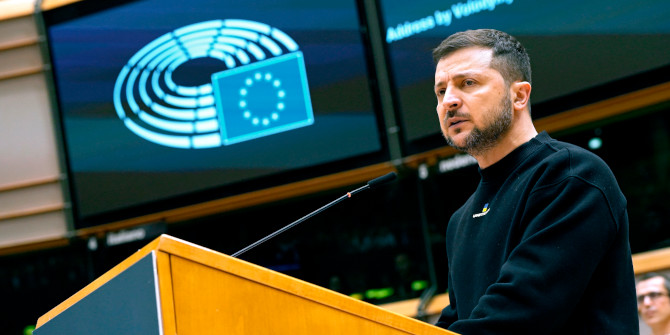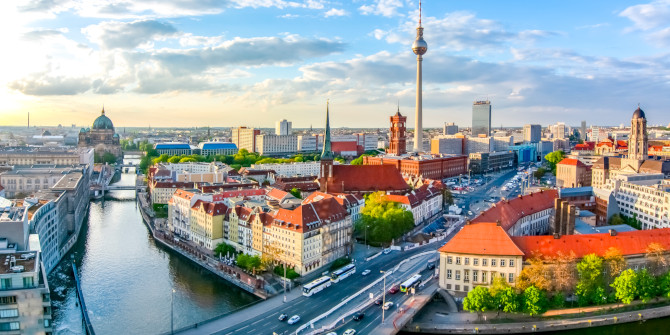In 2024, over 40 countries worldwide are going to polls in an unprecedented year for national elections. With the rise of nationalism seen throughout Europe, the Americas and South and Southeast Asia, there is potential for electoral outcomes to significantly shape not just domestic politics but the global order, writes Michael Cox.
When I lived in Northern Ireland, one of the many black-humoured jokes that did the rounds during the so-called “Troubles” was that elections were a wonderful idea – definitely preferable to the gun – but only so long as moderate, middle of the road people won them. And as we know, they frequently didn’t! Indeed, the more the peace process has embedded itself into everyday life in the North, the more Sinn Fein and the Democratic Unionist Party, which are hardly your typical middle of the road parties, have garnered more and more support. Elections are no doubt a fine way of rotating elites, as the great Italian sociologist Vilfredo Pareto once observed, but in disturbed times and disturbed places, they are just as likely to upset the political apple-cart than generate stability.
That, I think, is where the world is right now. It’s not one-way traffic, to be sure. After all, liberals have just won in Poland, and if polls are to believed – a doubtful proposition, I know – the most moderate Labour Party in recent history is likely to be in power in Britain by the end of 2024. But before we become too complacent, recall what happened in late 2023 in Argentina and the Netherlands where radical populists – one calling for the dollarisation of an economy already in meltdown and the other promising to ban the Quran – did spectacularly well. Perhaps these were just aberrations, freak storms in an otherwise cloudless sky. But as others have observed, the direction in which history is travelling in our current age of crisis and war provides little room for comfort.
Ironically, the only two countries where we can predict the political future with any degree of certainty are those who many believe, rightly or wrongly, are the reasons why the world is in such an unsettled state right now: Russia, whose upcoming presidential election will almost certainly witness the return of Valdimir Putin, and China, where they have dispensed with such bourgeois formalities as elections altogether. Little wonder Xi looks so relaxed these days.
All in all, over 40 countries are going to the polls in 2024, but some are clearly more crucial than others. These include those to be held in disputed Taiwan, which holds a general election in January under the very “watchful” eye of mainland China; Indonesia, a country of 275 million people, which votes in a new President the following month; South Africa, where a third of the country is unemployed and crime rates are soaring; and India where a general elections are being held between April and May in an atmosphere of increasing polarisation.
We then arrive at probably the most critical and most unpredictable election of all: that taking place in the United States in November 2024. Here the situation is completely up in the air. Given his not inconsiderable achievements in steadying the ship of state, the incumbent President Biden might have hoped to be heading for a relatively comfortable victory. But he is not, and it is not beyond the bounds of possibility that a former President who believes he was robbed of his political birthright in 2020 could easily be returned to the White House. Donald Trump might look like a political dinosaur who says the most outrageous of things. However, it would be foolish to underestimate him. It would be equally short-sighted to think he has been tamed by the march of time with little evidence to think that this particular tiger has shed his stripes. On the contrary, he has vowed that once he has returned to power he will wreak revenge on his enemies at home while tearing up everything the Biden team has done abroad. So, farewell to more serious aid for Ukraine, good-bye to the Paris Agreement on climate change, and perhaps au revoir to NATO, as we now know it.
In his extraordinary play, Samuel Beckett (who coincidentally also hailed from Northern Ireland) talked of his two characters Vladimir and Estragon “waiting” for “Godot”, who, as we know, never turns up. But if only this were true for the United States, where in November the metaphorical Godot in the shape of either Biden or Trump will almost certainly turn up and fight what could easily turn into the most poisonous political fight of the last half century. Moreover, whoever wins, and by whatever margin, there is little chance the result will deliver a new era of peace and tranquillity into a country so divided against itself.
But long before we get to November, we should keep a very close eye on the upcoming elections in June that will decide the composition of the new European Parliament. Here we need to guard against alarmism. As the more optimistic among us have reminded people, it is more than likely that the next European Commission will reflect the same pro-European centre-right, social democratic and green majority that supports the current crop of European leaders.
The tide is beginning to turn in a certain direction, however. In fact, it has already done so. Giorgia Meloni’s success in Italy, recent gains by anti-immigrant parties in Sweden and populist gains in Slovakia last September do not augur well for the future. With a cost of living crisis sapping faith in traditional elites, who in the eyes of many Europeans have lost control of their borders – and all this while an apparently unwinnable war in Ukraine drags on into a second year – the outcome of the elections is far from certain. Indeed, if things turn out to be only half as upsetting as some pundits are currently predicting, the most likely winner will not be democrats in the EU but that cool, calculating Head of State sitting in the Kremlin. For a leader who looked like being on his last legs only a year ago, the situation is starting to look increasingly bright.
Note: This article gives the views of the author, not the position of EUROPP – European Politics and Policy or the London School of Economics. Photo by RZ Images, Shutterstock.






“As the more optimistic among us have reminded people, it is more than likely that the next European Commission will reflect the same pro-European centre-right, social democratic and green majority that supports the current crop of European leaders.”
Technically the current crop is supported by the pro-European centre-right (EPP), social democratic (S&D) and liberal (ALDE/Renew) majority, with Greens in the opposition.
The most likely outcome isn’t the same again: rather it’s an alliance of EPP and the more right-wing ECR.